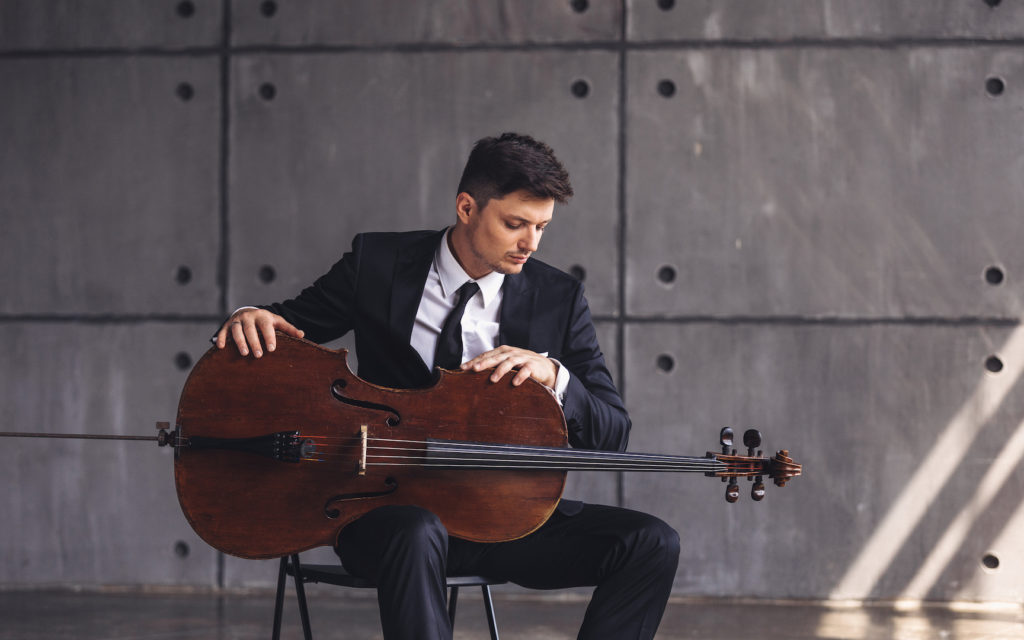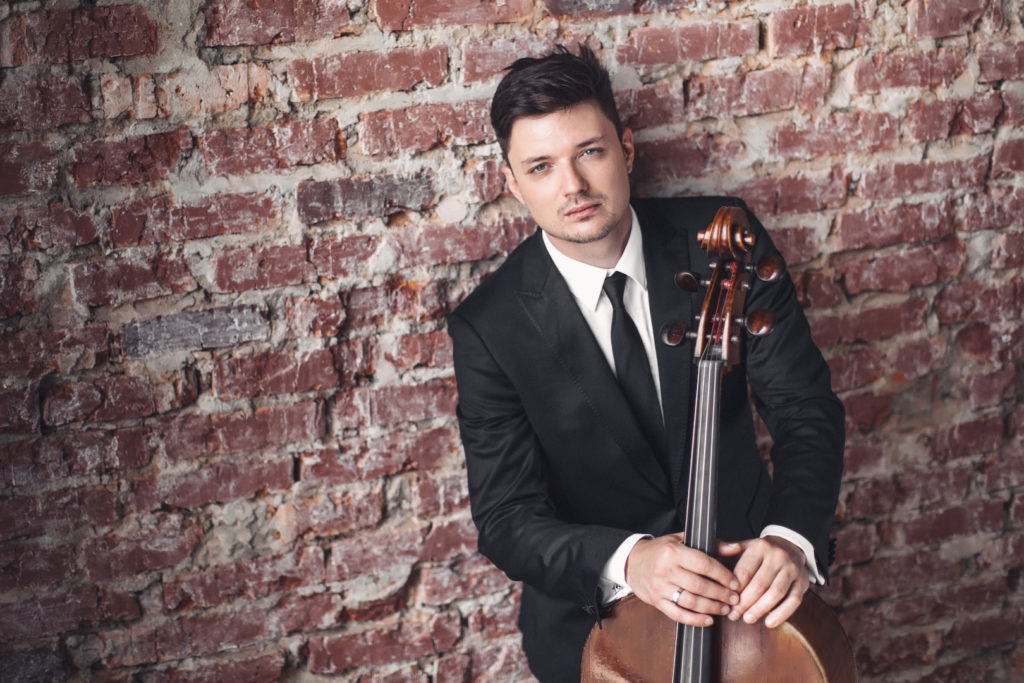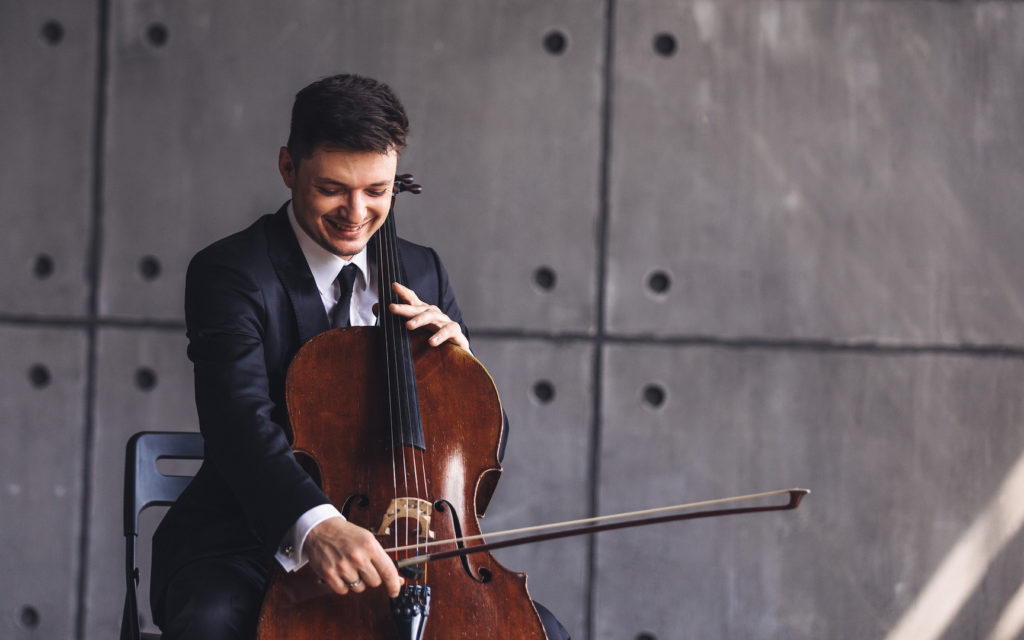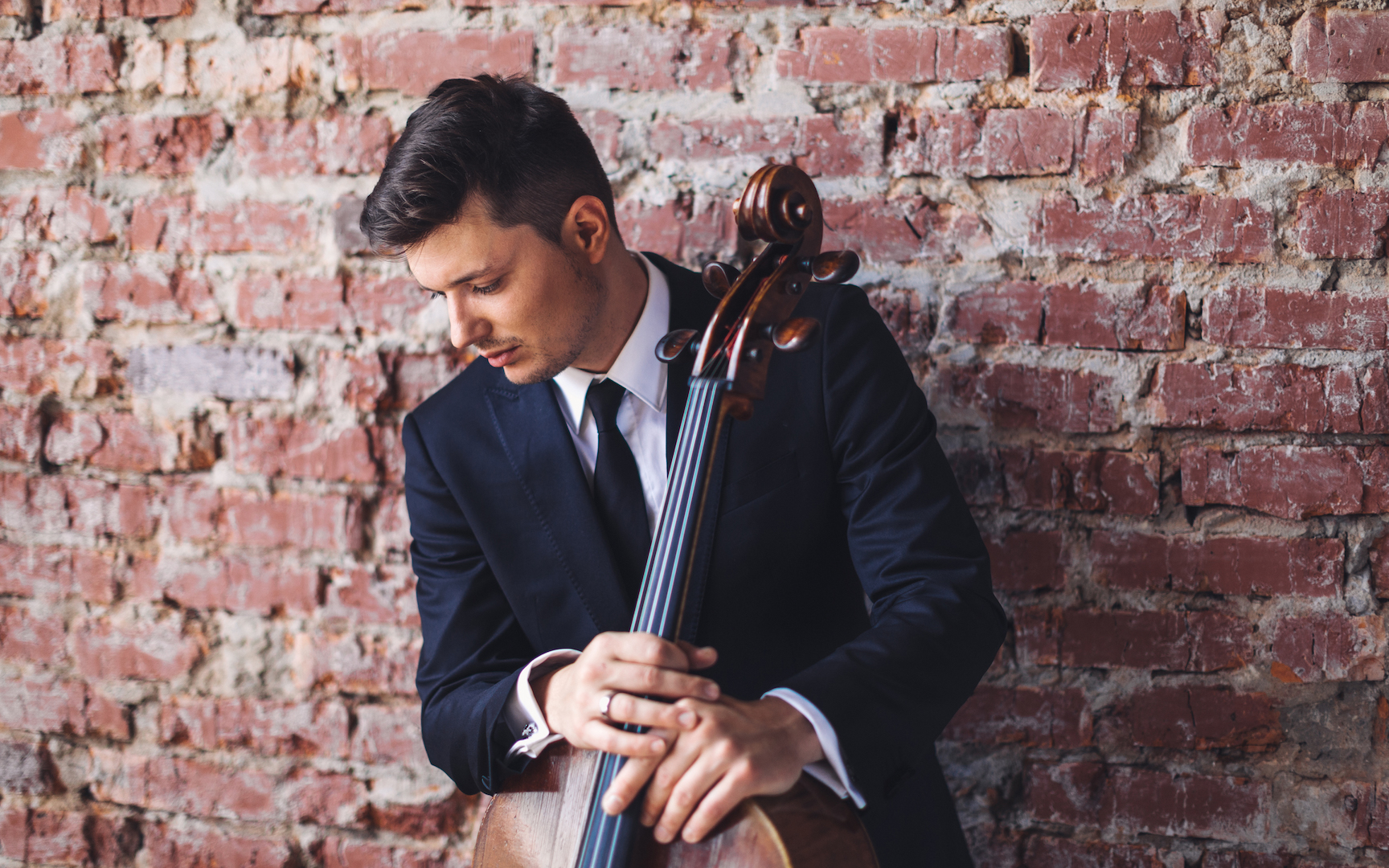You think that the concert season has ended in Montenegro? It’s not! You have a chance to enrich your autumn and winter evening with the musical art. Dmitrii Prokofiev, soloist, first cello player of Montenegro Symphony Orchestra and pianist Ratimir Martinović, director of International Festival KotorArt, opened the winter edition Kotor Concert Season 2018/2019. We gladly present an interview with Dmitrii Prokofiev, a cellist, a person of art, living in Montenegro for the past several years, and believing that the art and creativity eventually becomes one of the central skills of the humans.
KA: Mr. Prokofiev, you played at the opening night for Kotor Concert Season with pianist Ratimir Martinović. What does this project mean to you?
Prokofiev: This concert is a significant event for me. It is the first time we are cooperating in such format when it is possible to make a closer musical contact. Duet is a dialogue between two people with an exceptional experience. And it is a rule, and not only about music, that such collaboration always walks over the musical limits and raises questions of the worldview in general. The public will undoubtedly be able to hear our differences and our similarities.
KA: What did the audience have a chance to hear in Kotor? Do you have any piece from the repertoire which you are particularly pleased about and why?
Prokofiev: I have always been enchanted by the music that I perform. It is very important for me as a musician. As Rostropovich, the great musician, said, that his favourite work is always the one he plays at his next concert. I will be performing a very intimate sonata by Schubert, which is written for the rare instrument of violoncello with very unusual sound. This intimacy and romanticism correspond to the spirit of Kotor, the city where a person is not lost in the running crowd. The piece by Schnittke is composed in the 20th century, but in the ancient Baroque style that is also very relevant for the Kotor, a city with a long and paradoxical story. However, along with baroque, it is a very cheerful city. Also, several pieces from different eras will be performed.

KA: Have you had a chance to work with Mr. Martinović before?
Prokofiev: I participated at the festival both as a soloist and as a chamber musician. However, despite our longtime plans to play together, this is the first time Ratimir and I performed together, and that for me is not only a great honor but also an absolute joy and a pleasure. Ratimir is a sensitive, sincere and wise musician, who precisely feels subtleties of the world music development and actively participates in music evolvement.
KA: You are a member of the Montenegrin Symphony Orchestra. What is your opinion about the ensemble and the music scene in Montenegro in general?
Prokofiev: Classical music life of Montenegro has a short, but rich history. Thanks to the enthusiasm of many incredible world-class musicians, who organized concerts for Montenegrin public. The Orchestra is the first and only professional team, thanks to which the whole Montenegro can listen to symphonic music all year long. It is difficult to overestimate the importance of work and the educational role of this orchestra. By sending information about human spiritual experience coded in music, accumulated for centuries, musicians offer a public more colorful picture of the world, give meanings and beacons for self-development. And we have to be grateful to Montenegrin public. Music life of Montenegro will actively develop, there are grandiose plans ahead. The state and the government build and repair concert halls, and that is just remarkable. I hope that they will increase the amount of support in the future and provide a continued and complex support for the art in Montenegro. There has to be an understanding, that the culture products, according to the economic theory, are as important for society as food and other products. Without them, society has no chances to survive. Spiritual hunger can also be strong, the same as physical. In Montenegro, there is no practice of patronage, private donations of wealthy citizens. Looking into the experience of Western Europe can be useful in this case. We should understand the main thing: in several decades many professions will be replaced by robots; hence more people will pursue science, art, and creative activity. The power of the state will be in creative people and people of art. Culture will become a valuable tool both in policy and in the economy. It is necessary to prepare for it already now!

KA: How long have you been living in Montenegro and how do you like the lifestyle of the local people? What do you miss from Russia?
Prokofiev: I have been in Montenegro for three years now. And I loved every second of being here. Montenegro is a perfect place for the person of art; moreover, an artist lives in each Montenegrin citizen. This is visible in their special perception and vital philosophy which is unique. This is also visible in Montenegrin soul music. And, of course, in the audience which attends our concerts when we play not only for them but together with them. Russia is always in my heart; my roots are there. But it sometimes happens that when I am in Russia, I miss Montenegro.

KA: What are your plans for the future?
Prokofiev: I do not always plan forward. Everything is very shaky and changeable nowadays. I want to play a lot in Montenegro, I want to reach new places and new listeners, and I hope it will be possible for me to achieve it. And where’s a will, there’s a way.


